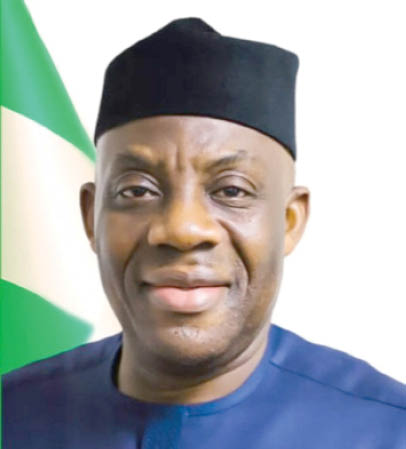The second half of the 1980s saw the dawn of today’s eyesore in Nigeria’s education system. Within the context of what obtains now in terms of operational standards, quality assurance and professional ethics, the country’s education system particularly at the basic level is nothing, in the fairest of descriptions, better than a hopeless enterprise.
Basic and secondary education especially in the last two decades of the 20th Century was characterised with consistent abysmal senior secondary school certificate examination results, which was a consequence of a myriad of challenges including poor funding, dilapidated structures, ill-equipped laboratories, obsolete library materials where they exist, and poorly trained and/or unqualified teachers. These collectively gave rise to the emergence and subsequent proliferation of private schools at that level of the system.
At the time they were established, the first generation of private schools were able to fill some gaps left by the failures that then characterised public schools. Gradually yet regrettably, private schools have since become as bad as, and in some cases, worse than the failing public schools they came to provide alternatives for. Some private schools are one-classroom learning centres that operate in car garages and make-shift cabins. The abuse of curriculum implementation is the worst breach left to endure by the authorities.
It is public knowledge that private schools in many urban cities and towns in Nigeria today rush to end school calendars earlier than government-approved dates. For example, to conclude the first term of the running 2024/2025 session which was designed to end mid-December 2024, some private schools in Abuja and many states started exams in November and wrapped it up on December 2, 2024; all with a deliberate intent not to pay December wages to their staff. Ironically, such schools thereafter invited parents to return their children for extra lessons, for another fee.
In truth, most (not all) private schools prioritise profit over quality education. In their strategic but unethical approach to woo parents to patronise their schools, some private schools use the curriculum of the next class for a lower class. For example, the curriculum designed for primary two is implemented by ambitious private schools for primary one. This way, pupils at the end of primary five would have completed the 6-year primary school segment of the 9-year basic education curriculum; a flagrant abuse of the country’s education policy.
This simply illustrates the lax regulation and supervision of private schools; two regulatory failures that make private schools not worth the name they’ve been licensed to operate.
Parents were irresistibly caught between a failed public education system and an exorbitant alternative available in private schools. Yet, some middle-income parents would rather keep their children in profiteering private schools even if their earnings can’t cover the fees instead of enrolling them in public schools; probably out of a desire to give their children the best. This has often compelled some parents to take loans to pay ridiculous school fees or loot public funds to keep their children in these schools. What a national tragedy!
Some school proprietors have found ways of cutting corners by sometimes paying off relevant Quality Assurance (QA) officers who are more interested in making money than regulating the schools. This has grave consequences on the country’s overall educational outcomes, including the products of such schools.
Through cutting corners, national tragedies like the Jos school building collapse, which claimed the lives of 22 persons in 2024 were recorded. With proper inspection and monitoring, housing students in buildings verging on collapse could have been forestalled.
Regulatory oversight by QA departments of the federal and state ministries of education must be strengthened to diligently perform their functions if only to tame the desperation which proprietors have developed to profit from the failing public education system. Staff of QA departments are advised to eschew corrupt practices in the issuance of operational licenses to private operators as well as in their monitoring of curriculum implementation in both private and public schools.
Teacher quality and retention is another critical problem bedevilling basic education in Nigeria. While private schools employ underqualified teachers to cut costs, those in public schools lack enough passion to discharge their duties because they consider teaching as a stepping stone to jobs that offer better wages. Poor working conditions, low salaries, and lack of professional development opportunities have led to high teacher turnover in most private schools.
Indeed, successive administrations in Nigeria have refused to give the education sector the attention it truly deserves. This is evidenced by the state of public schools in the country, from primary to tertiary institutions. When the lost glory of qualitative education is restored to public schools across all levels, excessive exploitation by proprietors of public schools will have been curbed; making the sector not only competitive for public and private investors, but also holding them to the same standard.
The country’s future is better imagined if it fails to get education right; the sector that prepares future leaders, entrepreneurs, and all the professionals required by other sectors for national development.
While we call on the government to ensure due diligence in regulating private schools, it should demonstrate sufficient commitment to investing in public schools. Access to quality education is a fundamental right of the Nigerian child!

 Join Daily Trust WhatsApp Community For Quick Access To News and Happenings Around You.
Join Daily Trust WhatsApp Community For Quick Access To News and Happenings Around You.


